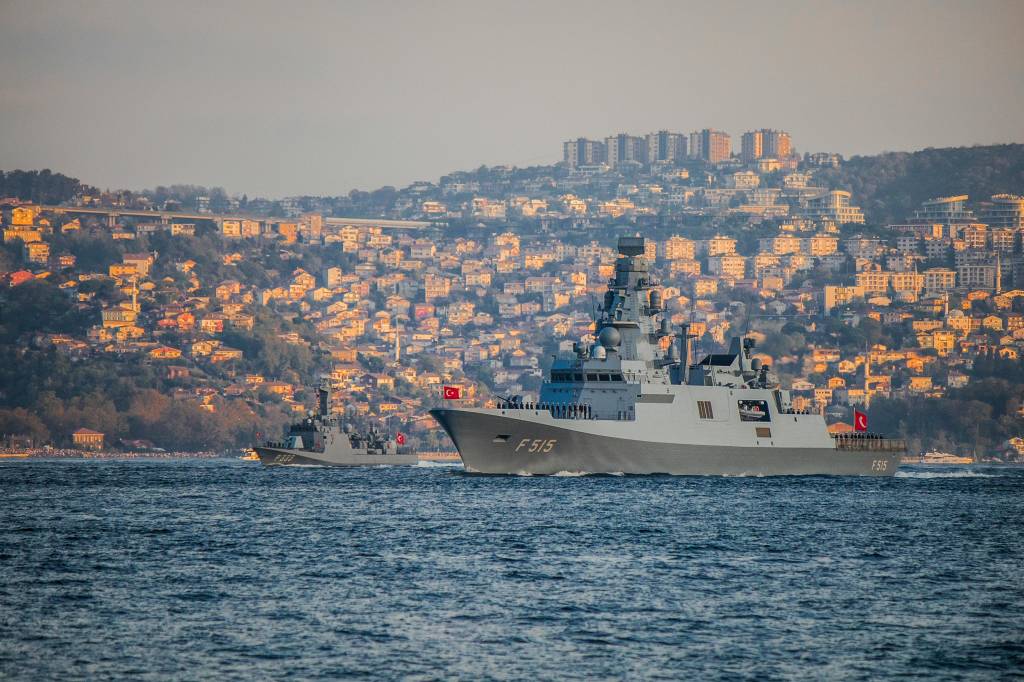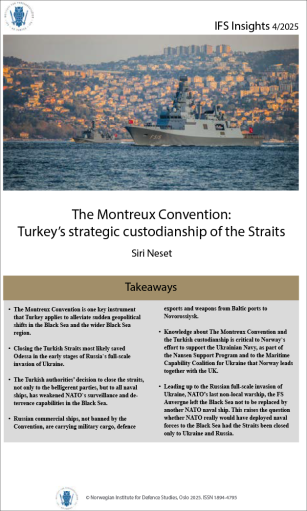
The Montreux Convention: Turkey’s strategic custodianship of the Straits

Takeaways
- The Montreux Convention is one key instrument that Turkey applies to alleviate sudden geopolitical shifts in the Black Sea and the wider Black Sea region.
- Closing the Turkish Straits most likely saved Odessa in the early stages of Russia`s full-scale invasion of Ukraine.
- The Turkish authorities’ decision to close the straits, not only to the belligerent parties, but to all naval ships, has weakened NATO`s surveillance and deterrence capabilities in the Black Sea.
- Russian commercial ships, not banned by the Convention, are carrying military cargo, defence exports and weapons from Baltic ports to Novorossiysk.
- Knowledge about The Montreux Convention and the Turkish custodianship is critical to Norway`s effort to support the Ukrainian Navy, as part of the Nansen Support Program and to the Maritime Capability Coalition for Ukraine that Norway leads together with the UK.
- Leading up to the Russian full-scale invasion of Ukraine, NATO’s last non-local warship, the FS Auvergne left the Black Sea not to be replaced by another NATO naval ship. This raises the question whether NATO really would have deployed naval forces to the Black Sea had the Straits been closed only to Ukraine and Russia.


